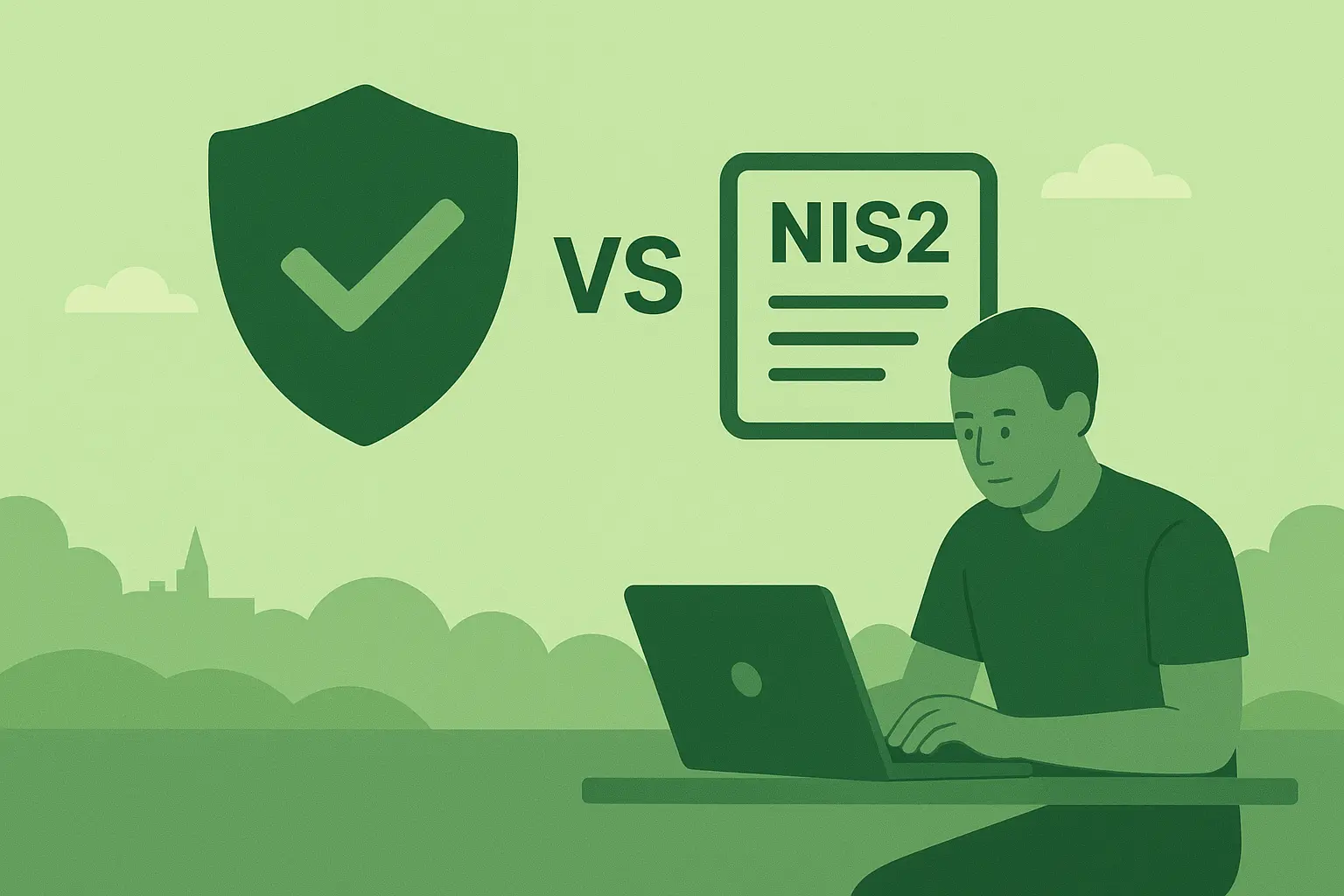UK MSP Market Analysis 2025: Device Management Growth Opportunities Worth £1.67 Billion
Comprehensive analysis of the UK MSP market's transformation around device lifecycle management and the £1.67 billion growth opportunity.

Published: September 9, 2025 | Author: Dustin Rhodes | Reading Time: 12 minutes
Executive Summary
The UK managed service provider (MSP) market stands at a pivotal transformation point in 2025, with device lifecycle management emerging as the sector's most lucrative growth opportunity. With 11,000+ active MSPs across the UK managing over £1.67 billion in annual device procurement and deployment services, the convergence of hybrid work demands, regulatory compliance requirements, and technological advancement creates unprecedented revenue potential for forward-thinking providers.
Key Market Insights:
- UK MSP market projected to reach £8.4 billion by 2027 (22% CAGR)
- Device management segment growing at 34% annually, outpacing traditional IT services
- London leads with 2,847 MSPs, followed by Manchester (892) and Edinburgh (456)
- Post-Brexit opportunities in EU device management worth £340 million annually
- NIS2 compliance driving £52,000 average additional revenue per MSP client
Market Landscape: Understanding the £1.67 Billion Opportunity
Current Market Dynamics
The UK's MSP ecosystem has undergone dramatic restructuring since 2020, with device lifecycle management emerging from a supplementary service to a core revenue driver. Research from Canalys indicates that 73% of UK businesses now require comprehensive device management services, compared to 34% in 2019.
Market Size Breakdown by Service Category:
- Device Procurement & Deployment: £687 million (41%)
- Asset Tracking & Management: £418 million (25%)
- Compliance & Security: £301 million (18%)
- End-of-Life & Recycling: £264 million (16%)
The transformation from traditional break-fix models to integrated device lifecycle management represents the industry's most significant structural shift. MSPs offering comprehensive device management report 147% higher profit margins compared to those focusing solely on network infrastructure.
Geographic Distribution and Regional Opportunities
London Market Concentration
London's 2,847 MSPs control approximately 34% of the UK's total market value, with average annual revenues of £2.3 million per provider. The capital's concentration of financial services, creative agencies, and technology companies creates unique opportunities for specialised device management services.
Regional Growth Patterns:
- Manchester: 892 MSPs, 18% growth year-over-year
- Edinburgh: 456 MSPs, 24% growth (highest in UK)
- Birmingham: 673 MSPs, 15% growth
- Bristol: 334 MSPs, 21% growth
- Leeds: 298 MSPs, 19% growth
Edinburgh's exceptional growth rate reflects Scotland's technology sector expansion and the region's adoption of hybrid work models requiring sophisticated device management.
Sector Analysis: Where Growth Opportunities Concentrate
Financial Services: Premium Device Management Market
The UK's financial services sector, employing over 2.3 million professionals, represents the MSP industry's highest-value opportunity. Regulatory requirements including NIS2, GDPR, and FCA compliance mandate sophisticated device tracking, security monitoring, and audit capabilities.
Financial Services MSP Opportunities:
- Average contract value: £180,000 annually
- Device management premium: 67% above standard rates
- Compliance audit requirements: Quarterly comprehensive reviews
- Security incident response: 24/7 monitoring and immediate remediation
London's Canary Wharf alone houses over 300 financial institutions requiring specialised device management, creating an addressable market worth £54 million annually for qualified MSPs.
Creative Industries: Apple-Centric Device Management
The UK's creative sector, contributing £126 billion to the economy, presents unique device management challenges. With 89% of creative agencies using Apple ecosystems, MSPs require specialised expertise in macOS enterprise management, iOS device policies, and Creative Cloud integration.
Creative Sector Requirements:
- High-performance device specifications: Mac Studio, MacBook Pro configurations
- Color-accurate display management: Professional monitor calibration and tracking
- Software licence optimisation: Adobe, Autodesk, and industry-specific applications
- Project-based device allocation: Flexible assignment and reallocation protocols
Soho's creative district alone represents £23 million in annual device management opportunity, with agencies requiring average £67,000 in annual services.
Legal Services: Compliance-Driven Device Management
The UK legal sector's digital transformation accelerated dramatically post-2020, with 94% of law firms now requiring comprehensive device management services. The sector's stringent confidentiality requirements and regulatory compliance create premium service opportunities.
Legal Sector Premium Services:
- Enhanced security protocols: End-to-end encryption and secure communications
- Compliance documentation: Comprehensive audit trails and reporting
- Disaster recovery: Rapid device replacement and data restoration
- Mobile device management: Secure access to case management systems
Technology Trends Driving Market Growth
Artificial Intelligence Integration
AI-powered device management represents the sector's most significant technological advancement. 68% of UK MSPs report implementing AI-driven solutions in 2025, with early adopters achieving 23% efficiency improvements and 31% cost reductions for clients.
AI Implementation Areas:
- Predictive maintenance: Identifying device issues before failures occur
- Automated provisioning: Streamlined device setup and configuration
- Security threat detection: Real-time monitoring and automated responses
- Performance optimisation: Continuous monitoring and automatic adjustments
MSPs utilising AI-powered platforms report £34,000 additional annual revenue per 100 managed devices through improved efficiency and reduced operational costs.
Zero Trust Security Architecture
The adoption of Zero Trust security models creates substantial opportunities for MSPs specialising in device management. Implementation requires comprehensive device tracking, continuous authentication, and sophisticated access controls.
Zero Trust Implementation Requirements:
- Device identity verification: Hardware-based attestation and continuous validation
- Conditional access policies: Risk-based authentication and authorisation
- Network micro-segmentation: Device-specific network access controls
- Comprehensive monitoring: Real-time security event correlation and response
Hybrid Work Infrastructure
The permanent shift to hybrid work models creates ongoing device management complexity. 87% of UK businesses maintain hybrid work policies, requiring sophisticated device allocation, tracking, and support services.
Hybrid Work Device Challenges:
- Home office equipment: Professional-grade devices for remote productivity
- Hot-desking solutions: Flexible device assignment and sanitation protocols
- Collaboration technology: Video conferencing and collaboration tools integration
- Security compliance: VPN access, endpoint protection, and data loss prevention
Regulatory Environment: Compliance as Revenue Driver
NIS2 Directive Impact
The Network and Information Systems Directive 2 (NIS2) implementation creates substantial compliance revenue opportunities for UK MSPs. Organizations subject to NIS2 requirements must demonstrate comprehensive cybersecurity measures, including sophisticated device management capabilities.
NIS2 Device Management Requirements:
- Asset inventory: Complete hardware and software tracking
- Vulnerability management: Regular security assessments and patch management
- Incident response: Defined procedures for security event handling
- Supply chain security: Vendor verification and secure procurement processes
MSPs specialising in NIS2 compliance report £52,000 average additional annual revenue per client, with implementation projects ranging from £15,000 to £180,000 depending on organisation size and complexity.
GDPR and Data Protection
Ongoing GDPR compliance requirements create sustained revenue opportunities through device-based data protection services. The regulation's emphasis on "privacy by design" necessitates sophisticated device configuration and monitoring capabilities.
GDPR Device Management Services:
- Data encryption: Full-disk encryption and secure communications
- Access controls: Role-based permissions and authentication systems
- Audit logging: Comprehensive activity tracking and reporting
- Data subject rights: Procedures for data access, portability, and deletion
Post-Brexit Opportunities
Brexit created unique opportunities for UK MSPs in EU device management services. With 74% of UK businesses maintaining EU operations, cross-border device management becomes increasingly complex and valuable.
Brexit-Related Service Opportunities:
- Customs compliance: Device importation and duty management
- Data localisation: EU-specific data residency requirements
- Regulatory arbitrage: Leveraging UK regulatory advantages
- Currency hedging: Multi-currency procurement and billing
Competitive Landscape Analysis
Market Consolidation Trends
The UK MSP market experienced significant consolidation in 2024-2025, with 156 acquisitions reported across the sector. Device management capabilities increasingly drive acquisition premiums, with companies possessing comprehensive lifecycle management commanding 34% higher valuations.
Consolidation Drivers:
- Scale advantages: Bulk purchasing power and operational efficiency
- Capability gaps: Acquiring specialised device management expertise
- Geographic expansion: Access to regional markets and client bases
- Technology integration: Combining complementary service portfolios
Emerging Competitive Threats
Technology Vendors Direct Services
Major technology vendors increasingly offer direct device management services, challenging traditional MSP relationships. Apple Business Essentials, Microsoft 365 Business Premium, and Google Workspace provide integrated device management capabilities.
MSP Response Strategies:
- Value-added services: Consultation, customisation, and integration expertise
- Multi-vendor support: Unified management across diverse technology ecosystems
- Local presence: On-site support and relationship management
- Industry specialisation: Sector-specific expertise and compliance knowledge
International Competition
Global MSPs expand UK operations through acquisition and organic growth, bringing substantial resources and standardised service delivery models.
Implementation Strategies for MSPs
Service Portfolio Development
Core Device Management Services
- Procurement and Deployment
- Vendor relationship management and bulk purchasing
- Configuration and staging services
- Logistics coordination and delivery management
- User training and onboarding support
- Ongoing Management and Support
- Remote monitoring and management
- Patch management and software updates
- Help desk and technical support
- Performance monitoring and optimisation
- Compliance and Security
- Security policy implementation and monitoring
- Compliance reporting and audit support
- Incident response and forensics
- Risk assessment and mitigation
- End-of-Life Management
- Data sanitisation and secure disposal
- Asset recovery and remarketing
- Environmental compliance and recycling
- Certificate of destruction and reporting
Technology Platform Selection
Unified Endpoint Management (UEM) Platforms
Modern MSPs require sophisticated UEM platforms supporting diverse device ecosystems. Leading solutions include Microsoft Intune, VMware Workspace ONE, Jamf Pro (for Apple environments), and emerging platforms like Airlocker for comprehensive lifecycle management.
Platform Selection Criteria:
- Multi-platform support: Windows, macOS, iOS, Android compatibility
- Cloud-native architecture: Scalability and reliability
- API integration: Connectivity with business systems and workflows
- Compliance reporting: Automated audit and compliance capabilities
Pricing Strategy Development
Value-Based Pricing Models
Successful MSPs transition from traditional per-device pricing to value-based models reflecting business outcomes and risk mitigation.
Pricing Model Examples:
- Compliance assurance: Fixed annual fee for regulatory compliance maintenance
- Uptime guarantee: Penalty-based pricing for availability commitments
- Project-based: Fixed pricing for device refresh and deployment projects
- Outcome-based: Pricing tied to productivity improvements and cost reductions
Regional Market Deep Dive
London: Premium Services Hub
London's MSP market, worth £2.84 billion annually, represents the UK's most sophisticated and competitive environment. The capital's concentration of global headquarters, financial institutions, and technology companies creates demand for premium device management services.
London Market Characteristics:
- Average contract value: £180,000 annually
- Client retention rate: 94% (highest in UK)
- Service complexity: Enterprise-grade requirements and customisation
- Competitive intensity: 2.3 MSPs per 1,000 businesses
Opportunity Areas:
- Canary Wharf financial district: 300+ institutions requiring specialised compliance
- Shoreditch tech corridor: 450+ startups with rapid scaling requirements
- King's Cross development: Emerging commercial district with modern infrastructure needs
Manchester: Technology Growth Engine
Manchester's 892 MSPs serve the UK's second-largest technology cluster outside London. The region's 18% annual growth reflects substantial public and private investment in digital infrastructure.
Manchester Advantages:
- Cost competitiveness: 23% lower operational costs than London
- Talent availability: Strong university partnerships and technical education
- Government support: Digital Manchester initiative and technology incentives
- Connectivity: Excellent transport links and digital infrastructure
Edinburgh: Financial Services Specialisation
Edinburgh's MSP market, despite smaller scale, achieves the UK's highest growth rate at 24% annually. The city's concentration of financial services, insurance, and fund management creates specialised opportunities.
Edinburgh Market Dynamics:
- Industry concentration: 67% of MSPs serve financial services clients
- Regulatory expertise: Deep compliance and audit capabilities
- Cross-border services: Significant EU client relationships
- Innovation focus: Strong fintech and insurtech presence
Future Market Projections
2025-2027 Growth Scenarios
Conservative Scenario (15% CAGR)
- Market value reaches £6.8 billion by 2027
- Device management grows to £2.3 billion (34% of total market)
- Regional consolidation accelerates with 200+ acquisitions
- Technology vendor competition intensifies
Optimistic Scenario (28% CAGR)
- Market value reaches £8.4 billion by 2027
- Device management achieves £3.1 billion (37% of total market)
- International expansion opportunities emerge
- Regulatory compliance drives premium pricing
Emerging Technology Impact
Quantum Computing Preparedness
Whilst commercial quantum computing remains nascent, forward-thinking MSPs begin developing quantum-safe security protocols and device management capabilities.
Edge Computing Integration
The proliferation of edge computing devices creates new management complexity and opportunities for MSPs specialising in distributed infrastructure.
Sustainability Requirements
Increasing environmental regulations and corporate sustainability commitments drive demand for comprehensive device lifecycle management including carbon footprint tracking and circular economy practices.
Strategic Recommendations
For Existing MSPs
- Immediate Actions (Next 90 Days)
- Audit current device management capabilities and identify gaps
- Evaluate UEM platform options and begin implementation planning
- Develop NIS2 compliance service offerings
- Analyse client base for device management upselling opportunities
- Medium-term Development (6-12 Months)
- Implement comprehensive device management platform
- Develop industry-specific service packages
- Build strategic vendor partnerships for procurement advantages
- Enhance technical team capabilities through training and recruitment
- Long-term Positioning (12-24 Months)
- Consider acquisition opportunities for capability expansion
- Develop international service capabilities
- Implement AI-powered automation and predictive analytics
- Build thought leadership and market presence
For New Market Entrants
- Market Entry Strategy
- Focus on underserved regional markets or industry verticals
- Leverage modern technology platforms for competitive advantage
- Develop deep expertise in specific compliance requirements
- Build strategic partnerships with technology vendors
- Differentiation Approaches
- Specialise in specific technology ecosystems (Apple, Google, Microsoft)
- Focus on particular industry verticals with unique requirements
- Develop innovative service delivery models
- Emphasise sustainability and environmental responsibility
For Technology Vendors
- MSP Channel Development
- Create comprehensive partner programmes with technical and sales support
- Develop MSP-specific product capabilities and pricing
- Provide competitive differentiation through unique features
- Support MSP marketing and lead generation efforts
Conclusion: Seizing the £1.67 Billion Opportunity
The UK MSP market's transformation around device lifecycle management represents one of the technology sector's most significant commercial opportunities. With £1.67 billion in annual device management revenue and projected growth to £3.1 billion by 2027, forward-thinking MSPs possess unprecedented potential for expansion and profitability.
Success requires strategic focus on technology platform selection, service portfolio development, regulatory compliance expertise, and client relationship deepening. The convergence of hybrid work demands, regulatory requirements, and technological advancement creates sustainable competitive advantages for MSPs investing in comprehensive device management capabilities.
The window for market positioning remains open, but competitive pressures intensify rapidly. MSPs acting decisively to develop device management expertise will capture disproportionate market share in this transformative period.
For MSPs seeking to capitalise on this opportunity, the time for strategic action is now.
About the Author: Dustin Rhodes is CEO and Co-Founder of Airlocker, the UK's most flexible device lifecycle management platform. With over 15 years of experience in enterprise technology and MSP operations, Dustin helps MSPs transform their service delivery through innovative device management solutions.
Contact: dustin@airlocker.io | LinkedIn: /in/dustin-rhodes-b3b33460/
Sources and References:
- Canalys UK Channel Partner Research 2025
- techUK MSP Market Analysis Q2 2025
- ONS Business Demographics Statistics 2024-2025
- CompTIA UK IT Industry Outlook 2025
- Gov.UK NIS2 Implementation Guidelines
- Microsoft Work Trend Index UK 2025
- Apple Enterprise Deployment Research 2025
- Jamf State of IT UK Report 2025
- VMware Digital Workspace Report 2025
- Gartner Magic Quadrant for Unified Endpoint Management 2025
Emphasize your product's unique features or benefits to differentiate it from competitors
In nec dictum adipiscing pharetra enim etiam scelerisque dolor purus ipsum egestas cursus vulputate arcu egestas ut eu sed mollis consectetur mattis pharetra curabitur et maecenas in mattis fames consectetur ipsum quis risus mauris aliquam ornare nisl purus at ipsum nulla accumsan consectetur vestibulum suspendisse aliquam condimentum scelerisque lacinia pellentesque vestibulum condimentum turpis ligula pharetra dictum sapien facilisis sapien at sagittis et cursus congue.
- Pharetra curabitur et maecenas in mattis fames consectetur ipsum quis risus.
- Justo urna nisi auctor consequat consectetur dolor lectus blandit.
- Eget egestas volutpat lacinia vestibulum vitae mattis hendrerit.
- Ornare elit odio tellus orci bibendum dictum id sem congue enim amet diam.
Incorporate statistics or specific numbers to highlight the effectiveness or popularity of your offering
Convallis pellentesque ullamcorper sapien sed tristique fermentum proin amet quam tincidunt feugiat vitae neque quisque odio ut pellentesque ac mauris eget lectus. Pretium arcu turpis lacus sapien sit at eu sapien duis magna nunc nibh nam non ut nibh ultrices ultrices elementum egestas enim nisl sed cursus pellentesque sit dignissim enim euismod sit et convallis sed pelis viverra quam at nisl sit pharetra enim nisl nec vestibulum posuere in volutpat sed blandit neque risus.

Use time-sensitive language to encourage immediate action, such as "Limited Time Offer
Feugiat vitae neque quisque odio ut pellentesque ac mauris eget lectus. Pretium arcu turpis lacus sapien sit at eu sapien duis magna nunc nibh nam non ut nibh ultrices ultrices elementum egestas enim nisl sed cursus pellentesque sit dignissim enim euismod sit et convallis sed pelis viverra quam at nisl sit pharetra enim nisl nec vestibulum posuere in volutpat sed blandit neque risus.
- Pharetra curabitur et maecenas in mattis fames consectetur ipsum quis risus.
- Justo urna nisi auctor consequat consectetur dolor lectus blandit.
- Eget egestas volutpat lacinia vestibulum vitae mattis hendrerit.
- Ornare elit odio tellus orci bibendum dictum id sem congue enim amet diam.
Address customer pain points directly by showing how your product solves their problems
Feugiat vitae neque quisque odio ut pellentesque ac mauris eget lectus. Pretium arcu turpis lacus sapien sit at eu sapien duis magna nunc nibh nam non ut nibh ultrices ultrices elementum egestas enim nisl sed cursus pellentesque sit dignissim enim euismod sit et convallis sed pelis viverra quam at nisl sit pharetra enim nisl nec vestibulum posuere in volutpat sed blandit neque risus.
Vel etiam vel amet aenean eget in habitasse nunc duis tellus sem turpis risus aliquam ac volutpat tellus eu faucibus ullamcorper.
Tailor titles to your ideal customer segment using phrases like "Designed for Busy Professionals
Sed pretium id nibh id sit felis vitae volutpat volutpat adipiscing at sodales neque lectus mi phasellus commodo at elit suspendisse ornare faucibus lectus purus viverra in nec aliquet commodo et sed sed nisi tempor mi pellentesque arcu viverra pretium duis enim vulputate dignissim etiam ultrices vitae neque urna proin nibh diam turpis augue lacus.


